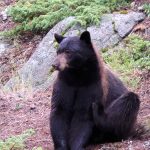Letter to the editor: Lethal control should be last resort for Colorado wolves
International Wildlife Coexistence Network

I am writing in reference to a Sky-Hi News article published on Aug. 10: “What went wrong with the Copper Creek wolf pack?: An interview with Colorado Parks and Wildlife director, Jeff Davis” by Ali Longwell.
The Copper Creek Pack’s troubles don’t prove wolves can’t coexist with ranching — they prove we must manage proactively and smarter.
Colorado Parks and Wildlife followed its guidelines in relocating the male wolf 2309 from Oregon. While his pack had some history of livestock conflicts, there is no evidence of 2309 attacking livestock. Packs tend to split up during the fall, with members hunting alone or in smaller groups.
In this case, unless there is previously unreleased evidence to implicate 2309 directly, assigning guilt by association is unreliable and, in this instance, irrelevant. 2309’s first documented livestock attacks began after he and his mate encountered an unmanaged livestock carcass site — a powerful, but preventable attractant. Research across the West shows that removing such food sources is the first step in avoiding conflict.
Lethal control should be a last resort in Colorado. Destabilizing a pack often worsens predation. And 2309’s injuries due to a poacher’s bullets only made the whole situation worse. This wolf and his mate cannot be blamed for preying on what they could catch to avoid starvation.
Director Jeff Davis deserves credit for acknowledging mistakes and complexity. Colorado must lead by focusing on prevention including carcass management, range riders, guard animals, and rancher support before trouble starts. The lesson from Copper Creek isn’t how to kill wolves faster — it’s how to keep them out of trouble in the first place.
Suzanne Asha Stone is executive director of the International Wildlife Coexistence Network and an international leader in livestock and wolf coexistence strategies. She has worked for 38 years in wolf reintroduction and conservation. Stone can be contacted at Suzanne@wildlifecoexistence.org.

Support Local Journalism

Support Local Journalism
The Sky-Hi News strives to deliver powerful stories that spark emotion and focus on the place we live.
Over the past year, contributions from readers like you helped to fund some of our most important reporting, including coverage of the East Troublesome Fire.
If you value local journalism, consider making a contribution to our newsroom in support of the work we do.






